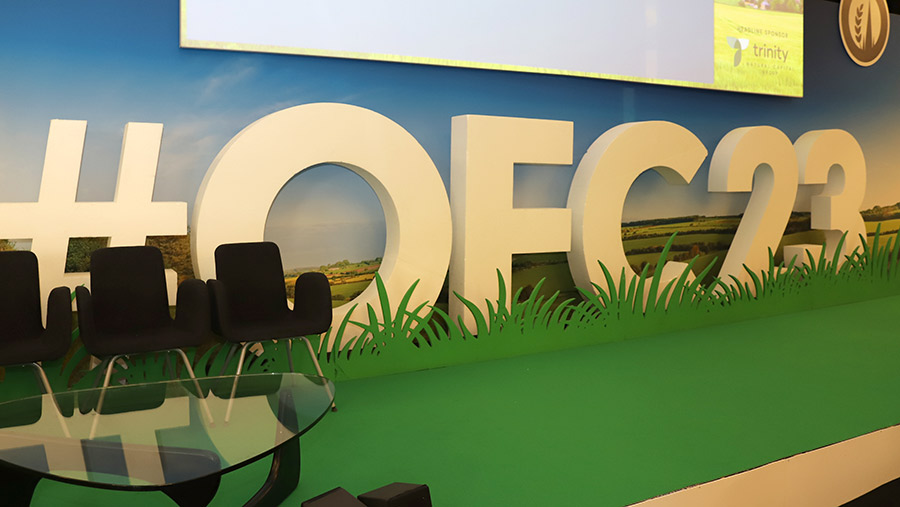OFC 2023: Farmers told to back public money for public goods
 © Oxford Farming Conference
© Oxford Farming Conference Farmers and land managers in England should get behind Defra’s “public money for public goods” mantra or face the possibility of cuts to the agricultural budget, a population biologist has warned.
Sir Charles Godfray, a University of Oxford professor and fellow of the Royal Society, said the £3bn annual government budget for the farming sector was “very vulnerable” to other budgetary pressures now the UK had left the EU’s common agricultural policy.
See also: OFC 2023: Report seeks fairness for farmers in food supply chain
But the argument for the retention of this £3bn within land use and farming under public money for public goods was “really strong” and would stack up and connect with hard economists at the Treasury.
Speaking at the Oxford Farming Conference (OFC) on Friday 6 January, Prof Godfray said: “I think there is really strong arguments for public money for public goods. It makes economic sense.
“It’s how economists think is the best way to provide for the ecosystem services and natural capital, the things that markets don’t naturally pay for.”
The agricultural policy of paying farmers public money to deliver public goods appeared in Defra’s Health and Harmony: The Future for food, farming and the environment in a green Brexit paper back in 2018, when Michael Gove was the environment secretary.
Prof Godfray said he believed the paper was one of the most visionary and influential documents that had come out of Defra or the former Ministry of Agriculture, Food and Farming (Maff).
The policy has since evolved to form the cornerstone of Defra’s new Environmental Land Management (ELM) scheme for England.
Definition needed
However, a discussion was still needed about exactly what the public money for public goods mantra means beyond improving biodiversity and ecosystems, he added, noting that the argument becomes “more complicated” concerning animal welfare and food production.
Prof Godfray said former Conservative MP Neil Parish and farmers had been calling for the government to recognise domestic food production as public goods, but he did not believe paying farmers government money to produce food was the right approach.
The CAP and the single farm payment had “papered over” some of the of unfairness in the supply chain, he said.
But he stressed that the resilience aspect of future food security should be considered as public goods, more than any specific level of self-sufficiency.
Allowing farmers to produce food and get a fairer return would help them to become more resilient to provide public goods. “I would like to see better and fairer private goods markets working and then having payment for public goods.”
Prof Godfray said the twin challenges of Covid-19 and the Ukraine-Russia war had shown that the global food supply chain was resilient.
But he argued that with our responsibility as an influential country, “we should be stress-testing our food security system”.
Royal Society report
Meanwhile, an upcoming report published by the Royal Society would explore some of the challenges and opportunities for a future land-use framework.
He summarised an effective strategy in three parts: land chiefly managed for sustainable food production; land managed for multiple outputs and land managed for non-food outputs, such as semi-rural habitats, biofuels and rewilding.
Farmers were concerned about rewilding, he added, but devoting 2-3% of land to it could really help to make up for biodiversity loss.
“There’s real opportunity to find common ground among all those who care about farming and the environment,” Prof Godfray concluded.
